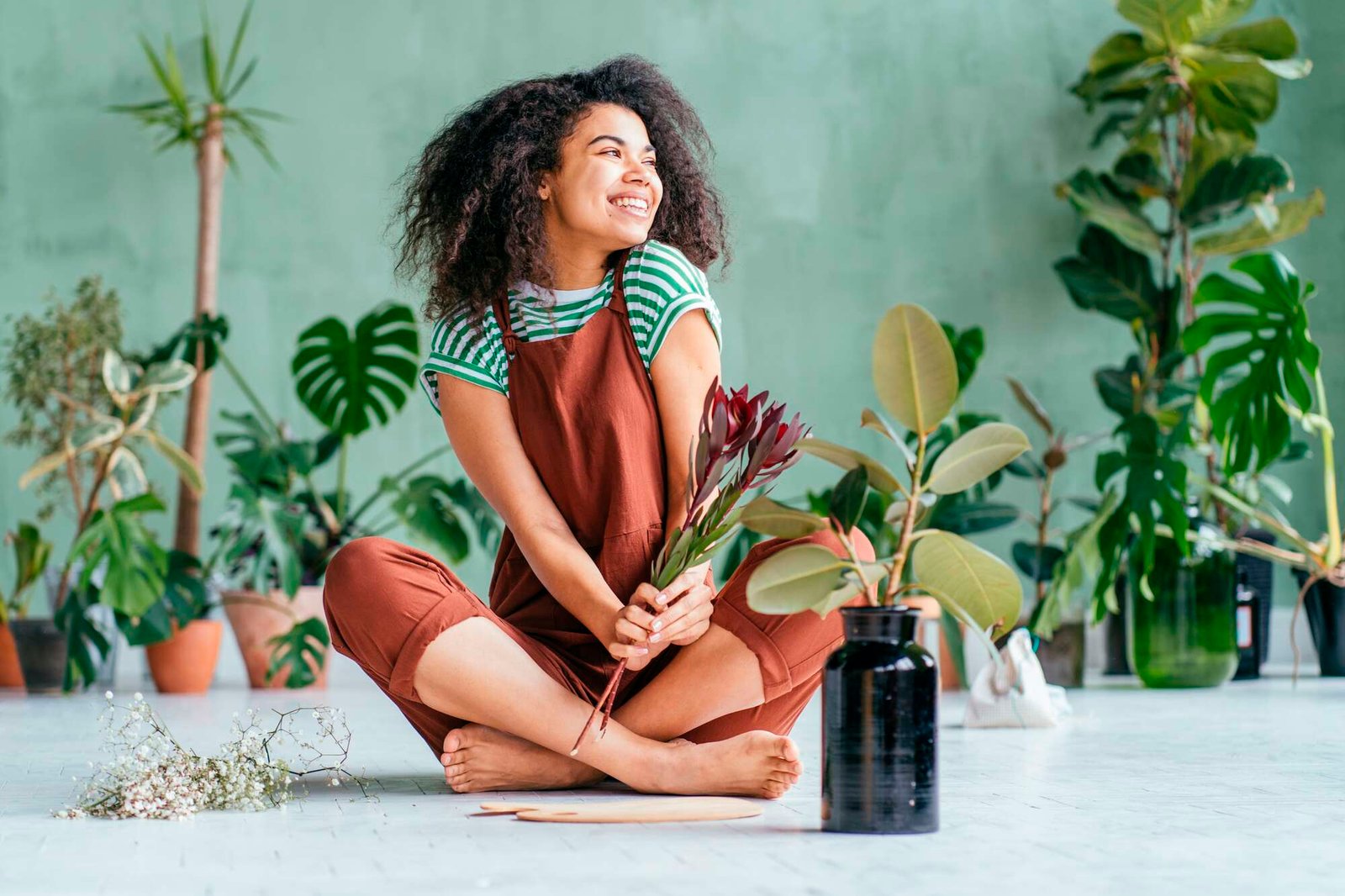[ad_1]
Gardening
Millennials, Gen Zs new house plants obsession
Tuesday January 10 2023
Gen Z and millennials are the newest plant parents in town. PHOTO | POOL
Gen Z and millennials are the newest plant parents in town. Like any new parents, they are anxious to provide the best care to their houseplants, which has seen them join gardening associations in droves to gain knowledge on how to care for their succulents, Calatheas, and the elusive variegated monstera.
Rosalyn Wangechi, 25, has collected more than 50 plants since she fell in love with houseplants in January 2020. Today, she has made them an integral part of her daily routine.
Gen Z and millennials are the newest plant parents in town. PHOTO | POOL
“I didn’t appreciate plants before. Sometimes I would visit my relative and see the plants sitting there in the corner of her house and I’d throw some comments like ‘that’s a nice plant’. In 2020, I emerged from being a botanophobia and now I’m a new person who is in love with plants. I could think about nothing else but plants,” says Ms Wangechi as she giggles.
“I started noticing ferns and succulents everywhere I went. I would gaze with uncontrollable longing into apartment windows, storefronts, restaurants, yoga studios, and dream about snatching up every beautiful plant within and hoarding them in my home,” she adds.
READ: How I built drought-resistant garden
Easy-to-care-for
Like most first-timers, Ms Wangechi opted to start with an easy-to-care-for plant. And what better choice than a snake plant?
Succulent plants grown by Teresa Nanjala. PHOTO | SALATON NJAU | NMG
“I did my research and found that the snake plant is a carefree, resilient houseplant that makes a bold, architectural statement in your home. Because it was my first time, I went for the most tolerant of the growing conditions plant,” says Ms Wangechi.
Every morning, when she wakes up, she heads to the kitchen to take her watering can and begins a 30-minute tour of all her plants.
She inspects every leaf for signs that the plant is thirsty or threatened by pests and tends to those that require her attention. For Sasha Idebe, 23, plants grew on her after moving out of her parent’s house in December 2019.
“My mum bought me a cactus [as a house gift]. I natured it but it died on me. But that did not kill my love for houseplants. When the Covid-19 pandemic hit in March, I started investing in plants and asked for advice on how to keep cactus plants alive. I bought another cactus, and the more it grew, the more I wanted to buy another plant, and so I did, and now I am proud to say I am a plant mum of 9,” says Ms Idebe.
Katie Barnes, the chairperson of the Nairobi district of the Kenya horticultural society, says Gen Z and the millennials have picked up the plant and flower culture.
Gen Z and millennials are the newest plant parents in town. PHOTO | POOL
“I have seen our membership increase by 20 percent and the best thing is seeing young people embracing farming, showing interest in gardening,” says Ms Barnes.
She says that since the pandemic, young people have been joining society to learn about plants and flowers. Such enthusiasm was evident during their recent flower show in Nairobi, whose theme was biodiverse gardening. Half of the new members were millennials and Gen Z.
READ: How to care for fresh cut flowers
Instagram perfect
Most of these young plant parents are big on sharing their parenting journey on social media platforms. Ms Wangechi does not plan to be the exception but quickly says “I haven’t yet delved into Instagram plant world because my hobby is so new and right now I am comfortable as it is. I don’t want to destabilise it.”
Suraj Shah, founder of Herbivore Garden Centre, an online plant nursery and garden centre that specialises in herbs, vegetables, exotic indoor plants, and other gardening accessories says that increasing interest from the young generations has been a boon.
Gen Z and millennials are the newest plant parents in town. PHOTO | POOL
Herbivore Garden Centre also designs, installs, and maintains regenerative gardens (both private and commercial), using permaculture design strategies that transform any garden or property into a thriving, easily manageable system of bio-diverse, interconnected ecosystem full of plants, beneficial creatures, and landscape features.
Permaculture is a design process to meet human needs while increasing ecosystem health. So, being permaculture nurseries and landscapers, we are designing our lives, gardens, and businesses with nature rather than against it.
“We set up kitchen gardens, organic gardens a lot of people would get their gardens landscaped and would get some fertilisers and weed killers thinking it is grass, but at the end of the day, they are chemicals you are walking in your garden barefoot living the harsh chemicals slipping through your feet, so that’s why we are completely organic in every that we do,” says Mr Shah.
[ad_2]
Source link



